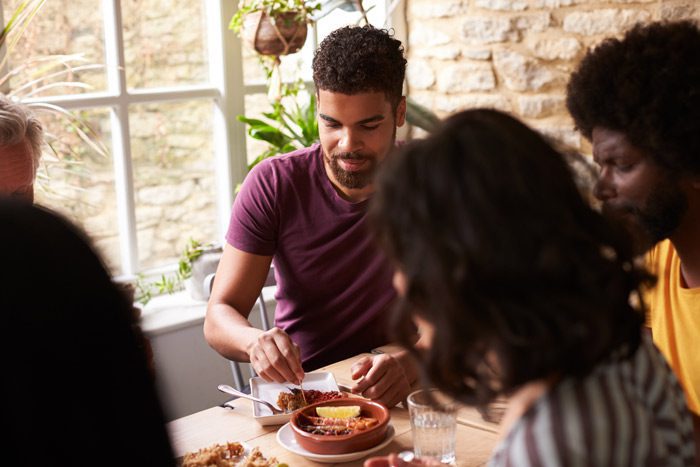 Building stronger relationships with friends and family promotes lasting sobriety by expanding your support network. However, if you’ve been neglecting these relationships in favor of substance abuse, the process of strengthening connections can feel overwhelming.
Building stronger relationships with friends and family promotes lasting sobriety by expanding your support network. However, if you’ve been neglecting these relationships in favor of substance abuse, the process of strengthening connections can feel overwhelming.
Tips for Building Strong Relationships
It’s not going to be easy, nor will it happen overnight. Building strong relationships with loved ones takes consistent time and effort. Follow these tips from Waypoint Recovery Center‘s South Carolina drug and alcohol addiction treatment center to help you start reconnecting with friends and family.
Keep in Touch
Relationships are like flowers in a garden. Without care and attention, they start to wilt. If you want to create stronger relationships with friends and family, you need to make consistent communication a priority.
When face-to-face meetings aren’t possible, communication via email, text, phone, or video chat can be a good alternative. Even a gesture as simple as forwarding a recipe you think sounds delicious or a joke the recipient would find funny lets loved ones know they’re in your thoughts.
Create Rituals and Traditions
Sharing rituals or traditions takes a relationship to the next level. This doesn’t even need to be complicated. Even something as basic as “Taco Tuesday” with your kids can become a treasured tradition when you’re all spending time together.
The early stages of recovery are the perfect time to create new rituals and traditions with the people you care about. If how you previously celebrated holidays and special occasions is associated with drinking or using, looking for ways to have fun while sober will be beneficial to your recovery.
Be Honest
Addiction feeds on lies and secrecy, so honesty is a key element of building stronger relationships in recovery. Tell the truth, even when it’s uncomfortable.
Being honest means being upfront about your recovery efforts, including what triggers your cravings and what the people around you can do to help you continue to stay sober. Admitting you’re struggling and asking for help won’t be easy, but people who care about you will appreciate your honesty.
Be a Good Listener
A common mistake people make in relationships is expecting the other person to always listen to their problems without offering the same courtesy in return. Make a conscious effort to ask your friend or family member about their day, then give them your full attention while they are talking. (This means putting away your smartphone!)
When someone shares a problem with you, be careful not to respond in a way that minimizes their feelings. Statements like “it’s not such a big deal” or “you’ll feel better in the morning” trivialize their concerns. It is better to express sympathy for their predicament, reassure them that they have your full support, and ask if there is anything they would like you to do to help.
Be Accountable
Nobody’s perfect, and every relationship goes through difficult patches. However, you can do your part to make the relationship stronger by accepting full responsibility for your actions. When you agree to do something, whether it’s attending a social engagement or helping a friend with a special project, follow through with your commitments. When you make a mistake, apologize sincerely. Don’t try to deflect blame or make excuses—especially if you’ve said or done something to hurt a friend or family member’s feelings.
Accountability also means making amends for any past hurt you caused while you were actively abusing drugs and alcohol. You can’t change the past, but you can acknowledge that your behavior hurt the people you care about and express your desire to move forward in a more positive fashion.
Offer Forgiveness
If you’re holding on to anger or resentment from the past, ask yourself if this is truly how you want to continue living. While it’s smart to distance yourself from people who continue engaging in behaviors that put your sobriety at risk, forgiving friends and family for their past mistakes is sometimes the best way to get a clean slate.
If someone has acknowledged their actions and is making efforts to change, forgiveness is a gift that benefits everyone. You’ll feel lighter and more at peace whenever you’re able to let go of emotional baggage from the past—freeing you to direct your attention to moving forward with your recovery.





